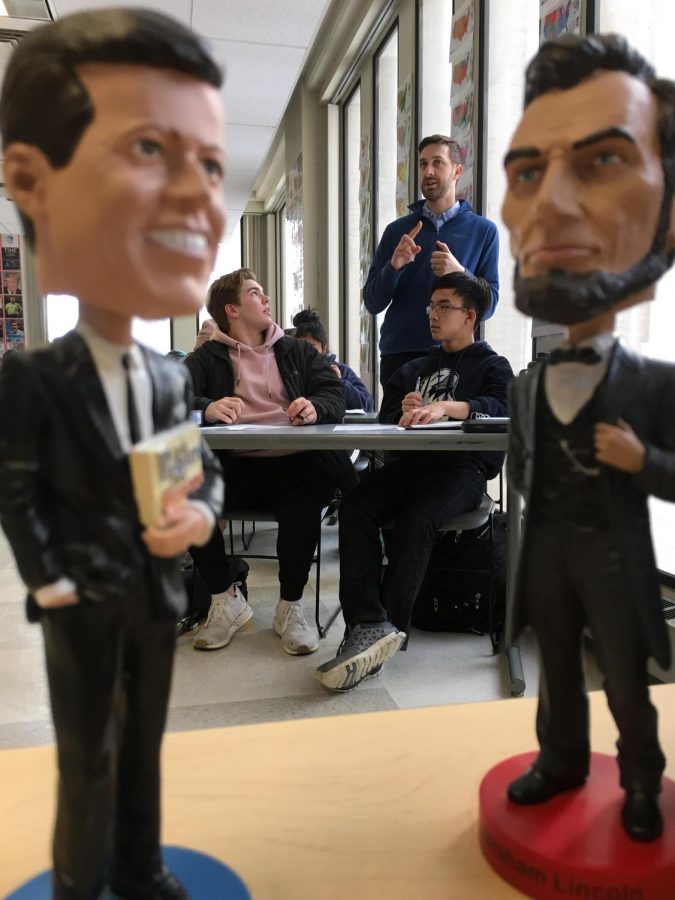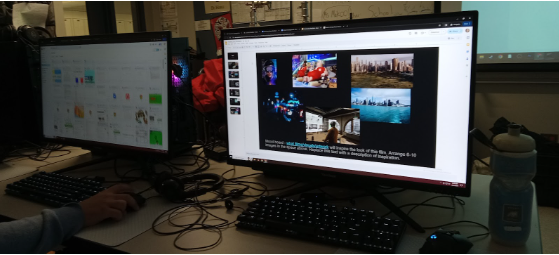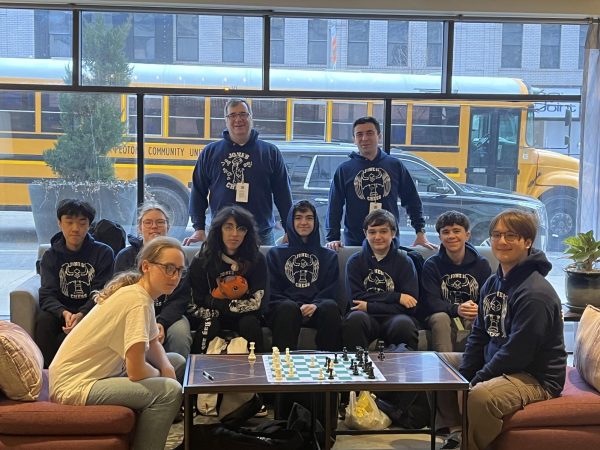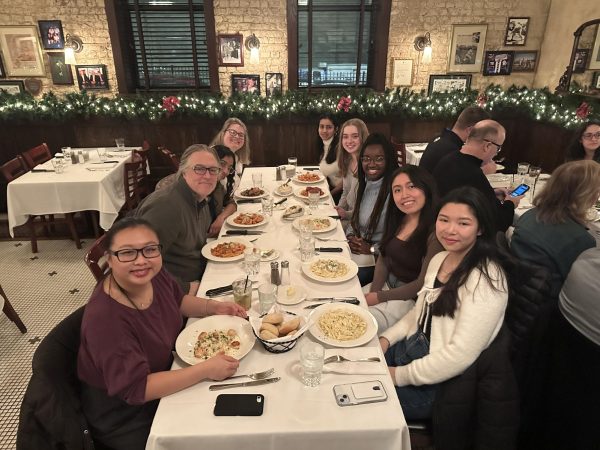Social science department reports for civic duty
New Illinois requirement prompts creation of new class
AP U.S. Government & Politics teacher Jon Smith discusses current class content with Michael Mutz ’19 and Jeremy Lee ’20.
With the time to begin scheduling classes rapidly approaching, rising juniors are about to find themselves faced with fewer options. In 2015, Governor Bruce Rauner signed legislation mandating that a civics course would become a graduation requirement starting with the Class of 2020. The goal of this legislation is to encourage students to become more involved in political discussions, community service, and the democratic process, helping the next generation of voters become responsible and competent citizens.
“CPS is responding to statewide legislation that was passed as a result of civic activist groups who were demanding that we have some sort of civics requirement at the high school level,” said AP US Government & Politics teacher Jonathan Smith. “Prior to this, the only state-mandated check on civic engagement was the Constitution test. Now, there is a full course curriculum.”
Starting next school year, all Jones juniors will be required to take their choice of Honors Civics or AP US Government & Politics. As Jones prepares to adhere to the new requirements, teachers and students have begun to point out that students will now have fewer options when it comes to choosing social science electives.
“Currently, the most popular social science elective courses are AP Macroeconomics with seven sections and AP Government and AP Psych with five sections each,” said AP US Government & Politics teacher and Social Science Department Co-Chair John Lund. “Criminal Psych has four sections, and Modern World History and Middle Eastern studies have three sections each. Those numbers will probably fluctuate with the new requirement.”
Mary O’Brien ‘20 sees the value of the new requirement, but also recognizes her lack of choices when it comes to electives.
“I think it’s good for juniors, but I don’t like how there are only two options. There’s not that much of a choice,” said O’Brien.
Niavh Tomich ‘20 feels like the new requirement is going to prevent her from taking her courses of interest in the future.
“I was trying to take Criminal Psych and AP Psych, so I feel like this [requirement] might make it hard for me to do that,” said Tomich.
Although students will no longer have as much freedom with choosing social science electives, Social Science Department Co-Chair Ryan Maggid feels that the new requirement will be beneficial to Jones students as they prepare to become politically engaged citizens.
“If you can get students engaged with and thinking about their political environment more and to how political decisions really do affect them, that’s really valuable,” said Maggid. “But if it’s just something where people are checking off the boxes to complete the requirement, then it’s a waste of time. If it’s taught in a way that gets students more informed, politically active, and understanding of the system, especially in our fake news era when people don’t really know what’s going on, then it’s a win.”
The Honors Civics course will bring a new twist to the current AP US Government & Politics curriculum, being more project-oriented and community based. It will also encompass a new service requirement that will be tailored to the individual student’s interests at both the Honors and AP levels. The civics service action project will be tested in this year’s AP US Government & Politics classes, in order to work out any kinks and ensure that the service aspect of the class will run smoothly next year.
“The civics course, compared to AP Gov, will be much more flexible in terms of what we can cover. Civics will focus on national, state and local politics, and personal civic engagement,” said Smith. “The idea is that once you come out of a civics class, you know how to interact with government at all levels. That’s going to be the main push of civics, while AP Gov focuses on the national side of our federalist system and navigating the intricacies of politics.”

INTERESTS AND EXTRACURRICULARS: Law, writing, music
ONE WORD TO DESCRIBE ME: Hilarious
IN TWENTY YEARS: Hopefully starring in a movie about...

INTERESTS & EXTRACURRICULARS: Volleyball and Softball
ONE WORD TO DESCRIBE ME: Inquisitive
IN TWENTY YEARS: I will be a married lawyer...














